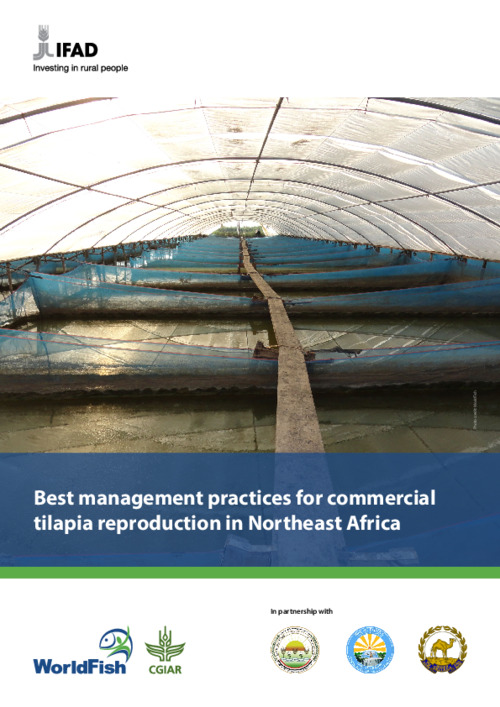Best management practices for commercial tilapia reproduction in Northeast Africa

Tilapia hatcheries are the most common type of fish hatchery in Egypt, as well as many other countries globally. Their success has helped supply fish farms with quality tilapia seed, which in turn has increased farmed fish production in many parts of the world. With the fish farming industry growing so quickly, however, tilapia hatcheries must improve the quality of their seed production for fish farmers to maintain their profit margins. To this end, these guidelines document the most optimal, locally appropriate, management practices for culturing Nile tilapia. There are currently three hatchery systems in use in Egypt for Nile tilapia: (1) concrete tanks with a water-heating system, (2) hapas under plastic tarps and (3) hapas in open ponds. Observing the best management practices (BMPs) in these guidelines will increase productivity in hatcheries and produce highly vigorous and uniform fry that are free from disease and malformations. In this way, hatcheries will be better placed to meet the demand among fish farmers in the country for high quality tilapia fry and fingerlings.